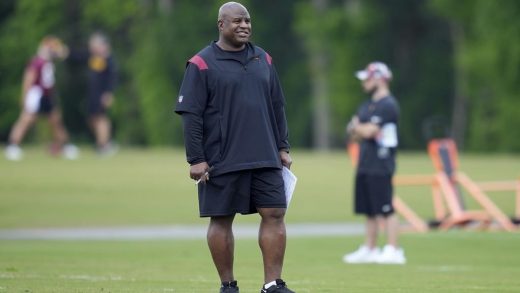Editorial Roundup: Minnesota

Minneapolis Star Tribune. July 29, 2023.
Editorial: New cannabis law needs work
Minnesota cities, counties now must regulate pot use in parks, public spaces.
Recreational cannabis becomes legal in this state starting Tuesday, and while many have hailed this legislation for restoring adult choice, expunging past crimes and other reasons, some significant issues remain to be worked out.
Chief among them is the question of exactly where individuals will be allowed to light up. Regrettably, in its zeal to pass the new legalization bill, the Legislature also appears to have made Minnesota one of the few states to allow smoking or vaping weed allowable on public property. Potentially, that could mean streets, sidewalks, public parks, plazas and other outdoor public gathering spaces.
The new state law allows cannabis use on private property and at licensed events. It is prohibited while driving a vehicle, in public schools, in prisons or anywhere that state law prohibits smoking or vaping of tobacco products or where a minor might inhale smoke —although there is little specificity on how far away the smoker must be. But it is largely silent on other public spaces not already covered by the state’s Clean Indoor Air Act.
In an interview with MinnPost, Sen. Lindsey Port, DFL-Burnsville, who carried the bill in the Senate, said she believes that means that unless otherwise prohibited, smoking or vaping would be permitted in any number of public spaces, including outside restaurants and on sidewalks. “Cities can put ordinances in for outdoors as they do with cigarette smoking,” Port told a MinnPost reporter. “They could restrict it from a certain distance from building entrances, for example. But assuming that the city doesn’t have an ordinance against it, you could smoke outside, in parks, if you’re a certain distance from children’s play areas.”
This is regrettable, and apparently cannot be chalked up to an oversight. It now leaves cities and local governments as the bad guys who must figure out how to impose some order and protect all those citizens who may not want to breathe in someone else’s substance of choice. Minnesota legislators appear to have tried to treat smokable marijuana more like cigarettes. That is a mistake.
There is a reason most states with legalized recreational marijuana also restrict its use in public spaces. Secondhand tobacco smoke is a known irritant and carcinogen. But smokable cannabis is an intoxicant for whoever breathes in the fumes, and can produce what’s known in street parlance as a “contact high.”
Plus — and let’s be blunt here — cigarettes don’t smell great, but the skunk-like scent of modern-day weed is piercingly obnoxious and lingering. Public spaces should be safe and usable by all, including those with health concerns or who simply appreciate uncontaminated air.
Not surprisingly, a number of cities statewide are scrambling to pass ordinances prohibiting smoking or vaping marijuana in public spaces. We urge them all to do so, even though a statewide ban similar to other states would have been much simpler, more uniform, easier to understand and to enforce.
The League of Minnesota Cities recently issued a memo urging cities to consider updating their ordinances, and the organization provided guidance for doing so. “If a city would want an enforcement mechanism to prevent the use of cannabis in public places, it would need to adopt an ordinance prohibiting such use and make it a petty misdemeanor,” the memo states.
Duluth will vote soon on whether to ban marijuana smoking in all city parks and other outdoor public spaces, such as Lakewalk, a favorite tourist spot. Other cities, such as Alexandria and Detroit Lakes, are developing ordinances. St. Paul is said to be considering it, along with Inver Grove Heights, Apple Valley, Prior Lake, Lakeville and Rochester.
Lakeville Mayor Luke Hellier told an editorial writer that his City Council will vote Aug. 7 on passing a ban on smoking or vaping in any city-owned park, sidewalk or public place.
“We were really caught off-guard,” Hellier said. It was not until after passage, he said, that it became clearer that public spaces were not covered. “Our goal with the ban is to educate,” he said, “not to be writing a bunch of tickets. We just want people to be clear about where they can and can’t do this.”
Hellier said that like many local officials, he has other concerns. While local governments can limit the number of dispensaries, a state formula in law still dictates that there be at least one dispensary per 12,500 residents. “That means Lakeville could have six,” Hellier said. But if Lakeville’s Dakota County has enough — 36, according to Hellier — Lakeville may get away with fewer. “Do we really need that many?” he said.
Complicating matters further, he said, tribes on sovereign land are not bound by the state’s regulatory timetable. Red Lake Nation is poised to start selling on Aug. 1. Hellier speculated that the nearby Shakopee Mdewakanton Sioux might soon follow suit. “That would give them a big jump on sales,” he said. “It would be hard for a small dispensary in Lakeville to compete.”
On Friday, 20 Republican legislators sent a letter to Gov. Tim Walz and DFL majority leaders asking for a special session on cannabis to address a number of concerns, including clarification on penalties for possession and consumption by minors; providing local communities with broader and permanent regulatory control; greater limits on smoking or vaping in public spaces, and to address what they are calling the “black market loophole” that results from the fact that it could be a year or more before legal dispensaries are up and running.
A special session is a big step to take, but there may be enough uncertainty here to warrant a fine-tuning of the law that can occur before the next regularly scheduled session in February 2024.
___
Mankato Free Press. August 1, 2023.
Editorial: New state law on natural landscaping in cities welcome
Increasingly homeowners and apartment and commercial developers are embracing landscapes that consist less of carpets of mowed sod grass and more on native grasses and wildflowers.
While many cities have changed their ordinances to allow more flexibility for residents to plant tall grasses and flowers, a new state law will make things easier for citizens across the state who want to trade in some or all of their lawns for more natural landscapes.
The law, which starts today, says cities can no longer ban pollinator-friendly native landscaping.
The new language requires cities to allow homeowners to install and maintain a “managed natural landscape,” which it defines as “a planned, intentional, and maintained planting of native or nonnative grasses, wildflowers, forbs, ferns, shrubs, or trees.”
But the law does not mean people can simply stop mowing their traditional grass and let it grow long or be filled with noxious weeds.
The law explicitly states that “turf-grass lawns left unattended” are excluded from the definition of a “managed natural landscape.”
Recent surveys show a majority of homeowners don’t want only large expanses of turf that needs to be frequently mowed and watered and requires chemicals to keep weed free. Instead they want to plant natural landscapes that once established are relatively easy to care for and that benefit pollinators who find less and less natural areas on the landscapes.
And while there remains some peer pressure to have a “perfect lawn,” more and more people welcome their neighbors putting in a planned natural landscape.
In North Mankato a homeowner in 2021 successfully sued the city after it declared his natural yard a “public nuisance” and said it contained “rank growth of vegetation.” After much debate and opposition from some residents the city approved an ordinance, with limitations, allowing natural landscapes on a portion of properties.
Other Minnesota cities have passed ordinances banning all front yard vegetable or natural gardens.
The state law, part of a national trend, means cities will need to review their current ordinances and make amendments as needed.
With the declining populations of bees and other pollinators it’s important that state and local governments allow the planting of natural gardens and pollinators without adding too many burdensome rules.
END
Credit: Editorial Roundup: Minnesota


